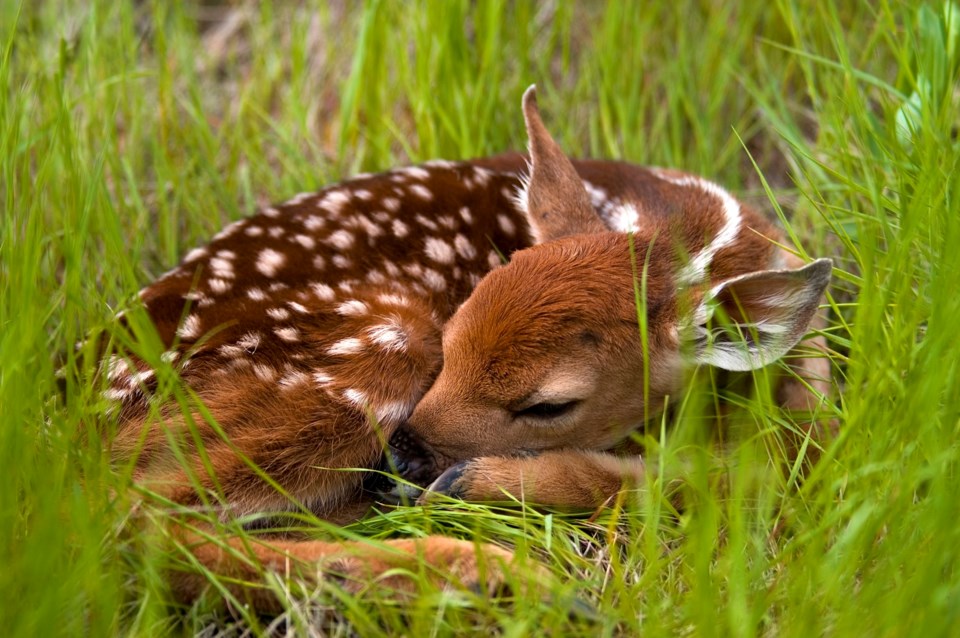SASKATCHEWAN — It's spring in Saskatchewan and all kinds of wildlife are having their young. Everyone loves a baby but if you see a young animal that looks abandoned, it likely isn't. In most cases, the best thing you can do to help them is to just let them be, advises the Environment Ministry.
Many animals leave their young alone for long periods while they forage for food, or to protect them from predators. The mother is often nearby, sometimes even watching. At these times, the biggest danger can come from well-intentioned people who think the baby needs their help. In fact, contact with humans can greatly reduce a young animal's chances of survival.
There are other good reasons to leave young wildlife alone. Some infectious diseases, like rabies and West Nile virus, can be transmitted from wildlife to people. It's also illegal to take wild animals home. Only recognized and licensed wildlife rehabilitators have the expertise to provide appropriate care to orphaned and injured animals, giving them the best chance to be successfully released back into the wild.
For example, before concluding that a fawn is abandoned, ask yourself:
- Has it been lying in the same position for more than 10 hours?
- Is it vocal?
- Is it covered in insects?
- Is it wet, possibly covered by the morning dew?
If you answered yes to any of these, the animal may have been there a while and needs help. Other indicators are if the mother is found dead nearby, or if the animal is found in an unnatural situation, such as a baby bird on a doorstep. In that case, you can move the young bird to the closest suitable habitat.
Remember: always call for advice before removing a young animal from the wild. If you can see obvious signs of injury or believe the animal has been orphaned, please contact your local conservation officer or the Turn in Poachers and Polluters (TIPP) line at 1-800-667-7561.




